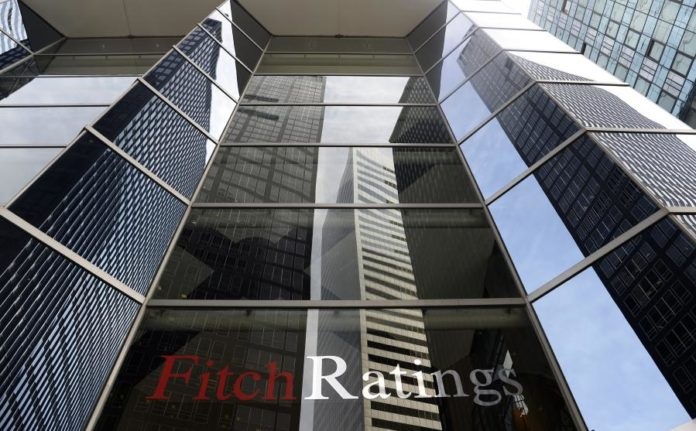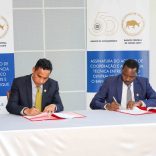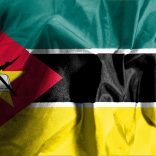Mozambique, East Timor central banks agree on technical cooperation
Fitch upgrades Mozambique to ‘CCC+’; removes from UCO

File photo: Lusa
Fitch Ratings has upgraded Mozambique’s Long-Term Foreign-Currency Issuer Default Rating (IDR) to ‘CCC+’ from ‘CCC’. Fitch typically does not assign Outlooks to sovereigns with a rating of ‘CCC+’ or below. Fitch has removed the Long-Term IDRs from Under Criteria Observation (UCO).
A full list of rating actions is at the end of this rating action commentary.
Key rating drivers
The upgrade of Mozambique’s IDRs reflects the following key rating drivers and their relative weights:
High
Financing Constraints Eased: Mozambique’s financing constraints have eased substantially with the agreement of a three-year USD456 million Extended Credit Facility with the IMF, with USD91 million to be disbursed in 2022. Fitch expects this programme to unlock additional concessional funding from multilateral partners, including the World Bank, after years of restricted access to external funding sources following the “hidden debts” scandal of 2016.
This easing of Mozambique’s external funding constraints coincides with an increase in the country’s external debt servicing costs in 2022 and onwards, after the expiration of the Debt Service Suspension Initiative (DSSI) in December 2021. Fitch expects Mozambique’s amortisation costs to increase to 4.7% of GDP in 2022 (3.0% of GDP in external amortisations) from 4.1% in 2021 (1.6pp in external amortisations) before moderating to 4.2% of GDP in 2023 (2.7pp in external amortisations). The country’s gross financing needs (amortisations plus the fiscal deficit) will be met through domestic market issuances and disbursement from multilateral partners, and we do not anticipate the country will incur external commercial debt in 2022 or 2023.
Medium
IMF Programme Supports Fiscal Consolidation: Fitch forecasts GDP growth to accelerate to 7.7% in 2024 and remain high through 2026. We expect the IMF programme will serve as a policy anchor for gradual fiscal consolidation and the strengthening of the sovereign’s institutional capacity, providing additional support for debt reduction.
Mozambique’s ‘CCC+’ IDRs also reflect the following key rating drivers:
Significant Structural Weaknesses: Mozambique’s ratings are constrained by significant structural weaknesses, namely poor performance on governance and human development indicators. Mozambique’s composite governance indicator has a percentile rank of 22, below the ‘B’/’C’/’D’ median of 30. Mozambique’s commodity dependence is also well above peers, with commodities accounting for an estimated 71% of current external receipts in 2022, against 40% for the ‘B’/’C’/D’ median. The sovereign has a weak repayment record, including a default on its sole Eurobond in 2016. The rating also reflects low GDP per capita, a difficult security situation and vulnerability to natural disasters.
High But Falling Government Debt: Fitch expects Mozambique’s government debt to decline to 102.7% of GDP in 2022, from 110.9% in 2021, mainly driven by high nominal GDP growth, and to 97.7% of GDP in 2023. These figures are above the historical ‘B’/’C’/’D’ median of 87% of GDP. Our government debt figure includes arrears, such as the guaranteed loans to two former SOEs, worth 7.6% of GDP at end-2021. Although the government has challenged the validity of both SOE guarantees through legal disputes in the English courts, the risk remains that they may crystallise as a liability for the central government, depending on the outcome of the legal proceedings.
Gradual Fiscal Consolidation Ahead: We project the fiscal deficit to gradually narrow to 3.3% of GDP in 2022 and 2.6% of GDP in 2023, from 5.7% in 2021. This narrowing of the fiscal deficit will reflect a decline in total expenditure, partly as pandemic-related expenses subside, as well as lower capital expenditure relative to GDP following an increase in 2022 (to finance the reconstruction programme of Cabo Delgado). We also expect total revenue (including grants) to increase, partly due to higher external grant disbursements, as well as revenue from Eni’s Coral Sul LNG project in its early stages of gas production (yielding about 0.3pp of GDP in 2023). Fitch assumes that the implementation of subsidies to the transportation sector in 2022 to address soaring inflation will have a neutral budget impact as they will be financed by grants from external partners.
Current Account Deficit to Widen: We forecast Mozambique’s current account deficit (CAD) to widen to 40% of GDP in 2022, from 21.9% in 2021, reflecting a much higher import bill. The main driver of the CAD will be the import of the platform for Eni’s Coral Sul floating LNG project, which arrived in January at a cost of USD4.5 billion. Mozambique’s high reliance on the import of food and fuels will be an additional driver of the widening CAD. Food and fuels accounted for about 20% of the total import of goods, which we expect to increase significantly amid higher global food and oil prices in 2022.
Near-Term Fall in FX-Reserves: Gross international reserves are forecast to decline to USD2.8 billion at end-2022, from USD3.6 billion in 2021, and then recover to USD4.0 billion at end-2024. The smaller decline in international reserves relative to the wide CAD is explained by the significant financial account net inflows to finance the LNG projects. Reserve coverage of current external payments will decline to two months at end-2022 (from 4.1 months in 2021), well below the ‘B’/’C’/’D’ median of 3.8. Fitch notes that Mozambique’s low coverage ratio is overstated by the significant imports related to megaprojects, which is a mitigating factor as megaprojects are financed through corresponding FDI inflows. Fitch does not expect exports from LNG projects to have a meaningful positive impact on international reserves until 2024.
Strong Growth Ahead, Higher Inflation: We forecast real GDP growth to accelerate to 3.8% in 2022 from 2.3% in 2021, as the country’s Covid-19 vaccination rollout continues to gather pace (about 44% of the population was fully vaccinated by end-June 2022) and pandemic-related restrictions continue to ease. We then expect real GDP growth rates to increase substantially over the medium term, to 5.5% in 2023 and 7.7% in 2024, mainly driven by rising output from Eni’s LNG project (Area 4). Fitch assumes that the construction of Total’s LNG project (Area 1) will resume in 2023, but this is subject to significant downside risks from a deterioration in the security situation in the Cabo Delgado region. We expect inflation to accelerate to an average 10.4% in 2022, from 5.6% in 2021, mainly due to higher imported inflation amid rising global fuel and food prices, and then steadily fall to average 5.9% in 2024.
ESG – Governance: Mozambique has an ESG Relevance Score (RS) of ‘5’ for both Political Stability and Rights and for the Rule of Law, Institutional and Regulatory Quality and Control of Corruption. Theses scores reflect the high weight that the World Bank Governance Indicators (WBGI) have in our proprietary Sovereign Rating Model. Mozambique has a low WBGI ranking at 22.3, reflecting the absence of a recent track record of peaceful political transitions, violence associated with the insurgency, relatively weak rights for participation in the political process, weak institutional capacity, uneven application of the rule of law and a high level of corruption.
Rating sensitivities
Factors that could, individually or collectively, lead to negative rating action/downgrade:
– Public Finances: Increased likelihood of a default event or a restructuring of sovereign market instruments, for example through participation in the G20/Paris Club Common Framework.
– Public Finances: A sustained deterioration in fiscal constraints, for example as a result of increased signs of saturation of the domestic government bond market or reduced capacity to access external financing sources – and/or a substantial increase in the public debt/GDP ratio, for instance as a result of widening fiscal deficits.
Factors that could, individually or collectively, lead to positive rating action/upgrade:
– Public Finances: A substantial decline in the public debt/GDP ratio, for instance as a result of a sustained reduction in the budget deficit of favourable court decisions for Mozambique’s SOEs’ debt obligations.
– Macro: Greater confidence in medium-term growth prospects, through the timely coming on stream of the LNG megaprojects.
Sovereign rating model (SRM) and qualitative overlay (QO)
Fitch’s proprietary SRM assigns Mozambique a score equivalent to a rating of ‘CCC+’ on the Long-Term Foreign-Currency IDR scale. However, in accordance with its rating criteria, Fitch’s sovereign rating committee has not utilized the SRM and QO to explain the ratings in this instance. Ratings of ‘CCC+’ and below are instead guided by the rating definitions.
Fitch’s SRM is the agency’s proprietary multiple regression rating model that employs 18 variables based on three-year centred averages, including one year of forecasts, to produce a score equivalent to a LT FC IDR. Fitch’s QO is a forward-looking qualitative framework designed to allow for adjustment to the SRM output to assign the final rating, reflecting factors within our criteria that are not fully quantifiable and/or not fully reflected in the SRM.
BEST/WORST CASE RATING SCENARIO
International scale credit ratings of Sovereigns, Public Finance and Infrastructure issuers have a best-case rating upgrade scenario (defined as the 99th percentile of rating transitions, measured in a positive direction) of three notches over a three-year rating horizon; and a worst-case rating downgrade scenario (defined as the 99th percentile of rating transitions, measured in a negative direction) of three notches over three years. The complete span of best- and worst-case scenario credit ratings for all rating categories ranges from ‘AAA’ to ‘D’. Best- and worst-case scenario credit ratings are based on historical performance. For more information about the methodology used to determine sector-specific best- and worst-case scenario credit ratings, visit https://www.fitchratings.com/site/re/10111579.
Sources of Information
The principal sources of information used in the analysis are described in the Applicable Criteria.
References for substantially material source cited as key driver of rating
The principal sources of information used in the analysis are described in the Applicable Criteria.
ESG considerations
Mozambique has an ESG Relevance Score of ‘5’ for Political Stability and Rights as World Bank Governance Indicators have the highest weight in Fitch’s SRM and are therefore highly relevant to the rating and a key rating driver with a high weight. As Mozambique has a percentile rank below 50 for the respective Governance Indicator, this has a negative impact on the credit profile.
Mozambique has an ESG Relevance Score of ‘5’ for Rule of Law, Institutional & Regulatory Quality and Control of Corruption as World Bank Governance Indicators have the highest weight in Fitch’s SRM and are therefore highly relevant to the rating and are a key rating driver with a high weight. As Mozambique has a percentile rank below 50 for the respective Governance Indicators, this has a negative impact on the credit profile.
Mozambique has an ESG Relevance Score of ‘4’for Human Rights and Political Freedoms as the Voice and Accountability pillar of the World Bank Governance Indicators is relevant to the rating and a rating driver. As Mozambique has a percentile rank below 50 for the respective Governance Indicator, this has a negative impact on the credit profile.
Mozambique has an ESG Relevance Score of ‘4’ for Creditor Rights as willingness to service and repay debt is relevant to the rating and is a rating driver for Mozambique, as for all sovereigns. As Mozambique has a fairly recent restructuring of public debt in 2020, this has a negative impact on the credit profile.
Except for the matters discussed above, the highest level of ESG credit relevance, if present, is a score of ‘3’. This means ESG issues are credit-neutral or have only a minimal credit impact on the entity, either due to their nature or to the way in which they are being managed by the entity. For more information on Fitch’s ESG Relevance Scores, visit www.fitchratings.com/esg.













Leave a Reply
Be the First to Comment!
You must be logged in to post a comment.
You must be logged in to post a comment.